Economy
Shortages, inflation and slow growth fog UK economy – Reuters UK
LONDON, Oct 5 (Reuters) – Britain’s economic bounce-back after coronavirus lockdowns is being hampered by problems in supply chains, a jump in inflation and the risk of a rise in unemployment, complicating the task for policymakers of steering the recovery.
Former Bank of England chief economist Andy Haldane says Britain is in a VILE era of volatile inflation, low expansion.
Financial markets now think the BoE is all but certain to raise interest rates by February but some economists, worried by signs of a flagging recovery, aren’t so sure.
Below are some of the gauges of Britain’s economy that are likely to be on the minds of economic policymakers.
INFLATION
Britain’s inflation rate hit 3.2% in August, its highest in almost a decade. Some one-off factors accounted for the record jump from July but the BoE thinks inflation is heading above 4%, more than double its 2% target.
The BoE is watching for any signs that consumers are losing confidence that inflation will be contained in the longer run.
Public expectations for inflation in the year ahead rose sharply in September, according to a Citi/YouGov survey which may have weighed on the minds of BoE rate-setters. They said last month that the case for raising rates was strengthening.
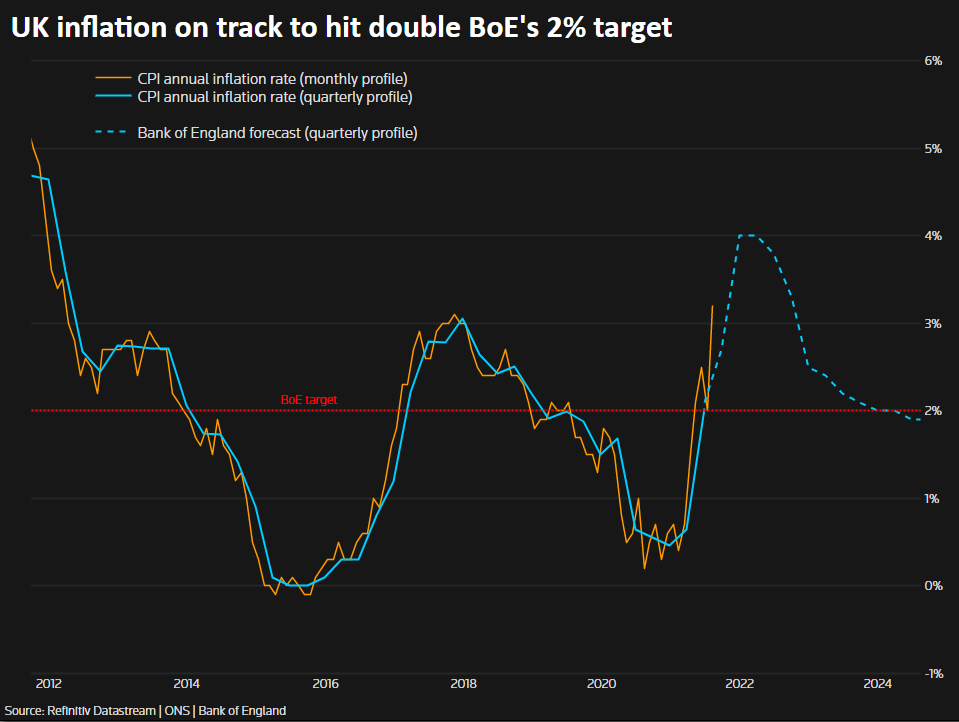

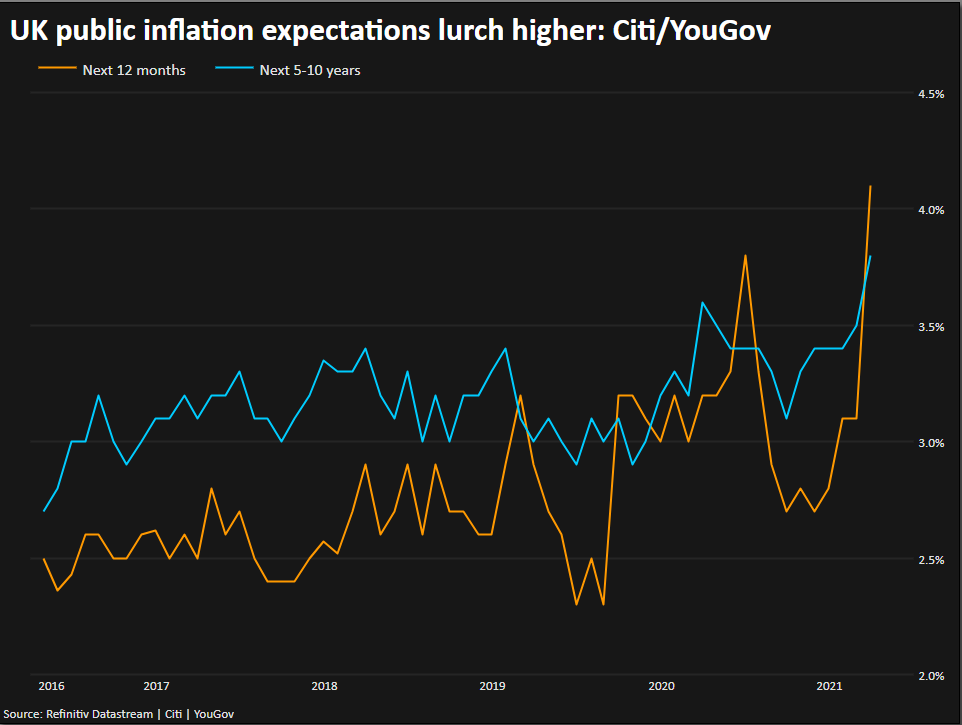

GROWTH FADING?
While Britain’s economy grew rapidly earlier this year as it reopened from a third COVID-19 lockdown, the latest readings show this momentum has largely dissipated. Economic growth slowed to a crawl in July, according to official data, and surveys of businesses and consumers suggest sluggish growth persisted into the second half of the year – even before the most severe supply chain problems seen in recent weeks.
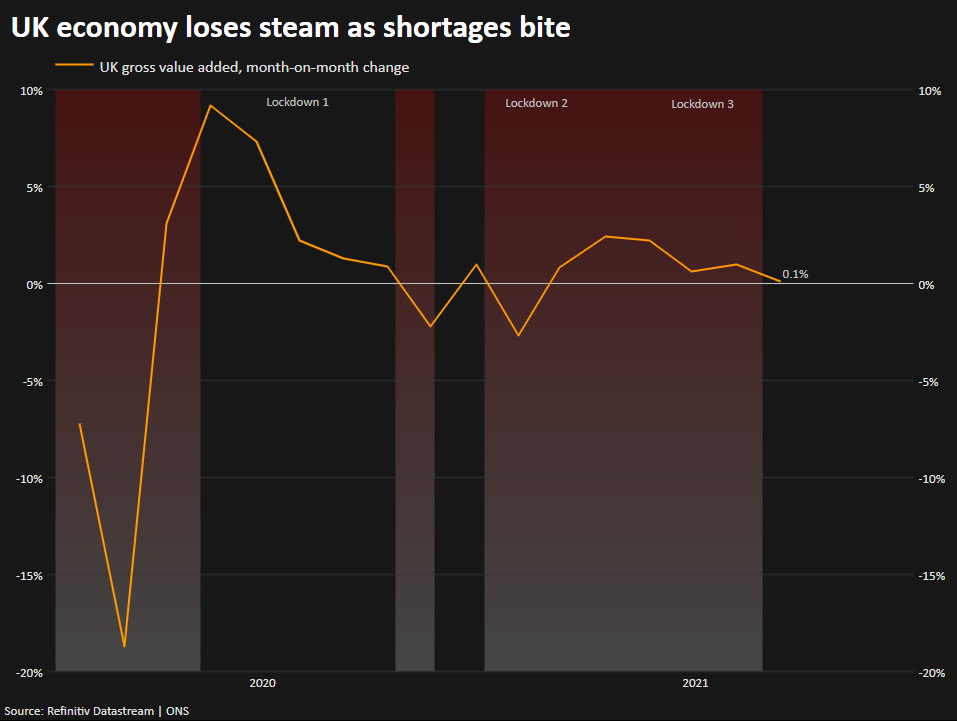

SUPPLY CHAIN PROBLEMS
There has been no let-up in the supply chain and staffing problems for British manufacturers dealing with hefty delays from suppliers, according to the latest IHS Markit/CIPS survey of businesses.
That was even before panic-buying at petrol stations, caused by a shortage of tanker drivers, led in late September to the biggest week-on-week drop in car traffic since early June – another unpromising sign for the economy.
The shortage of workers, something seen in other economies around the world, has worsened since Britain decided to leave the European Union and end free movement of workers from the bloc. But Prime Minister Boris Johnson denied on Tuesday Britain was in crisis and said its “natural ability to sort out its logistics and supply chains is very strong.” read more
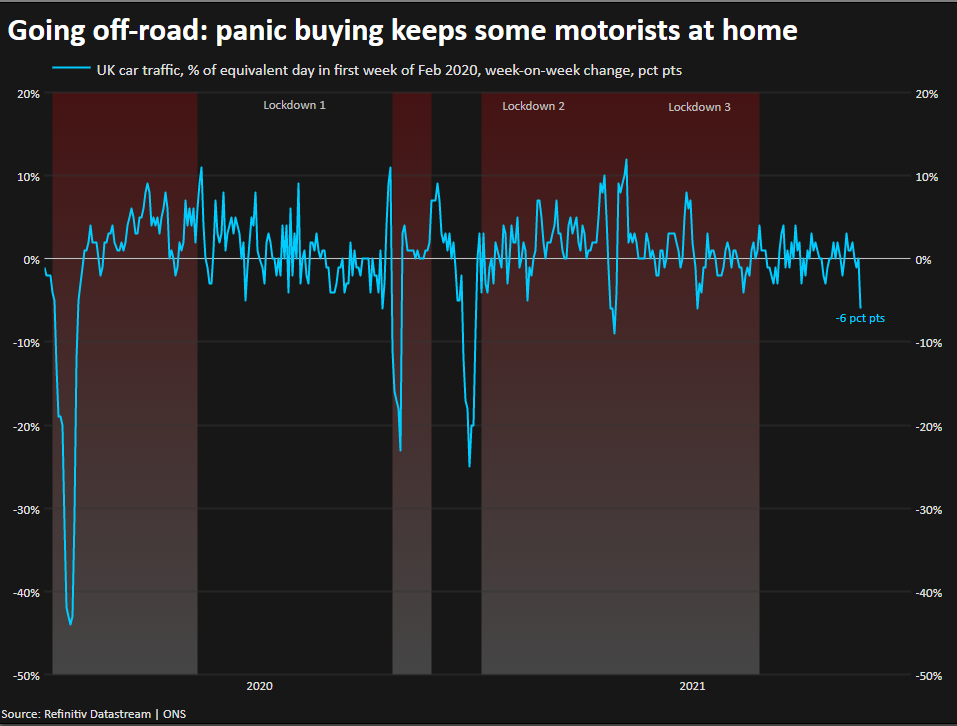

CONSUMER SPENDING
The supply chain disruption and rising inflation prompted a hefty hit last month to the GfK gauge of consumer confidence – historically a good indicator of household spending.
Households are also facing cuts to state benefits and tax increases for working people.
BoE data published last week suggested consumers are once again leaning more towards saving than spending.
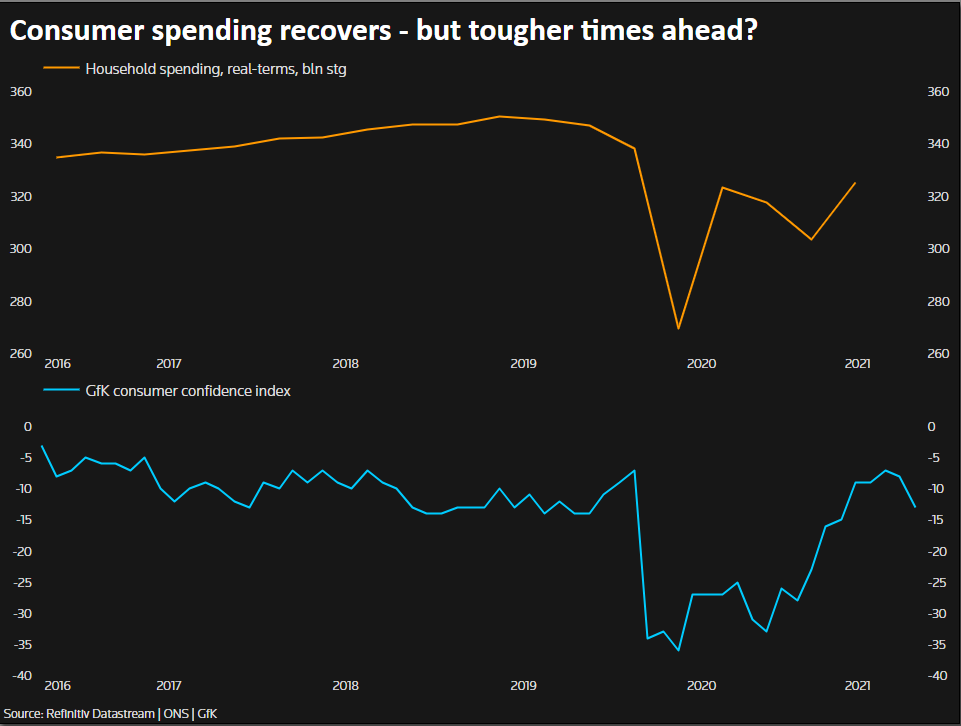

JOBS AND WAGES
Britain’s unemployment rate has fallen in six of the last seven monthly reports, helped by the economic recovery and the government’s jobs-protecting furlough programme.
That scheme ended at the end of September and the BoE is keeping an eye on whether unemployment is about to rise again.
Wages have been rising fast although the official measure of earnings growth has been boosted by statistical distortions caused by the pandemic. Still, inflation has started to bite into earnings: the official real-terms measure of total wage growth has declined for three months running.
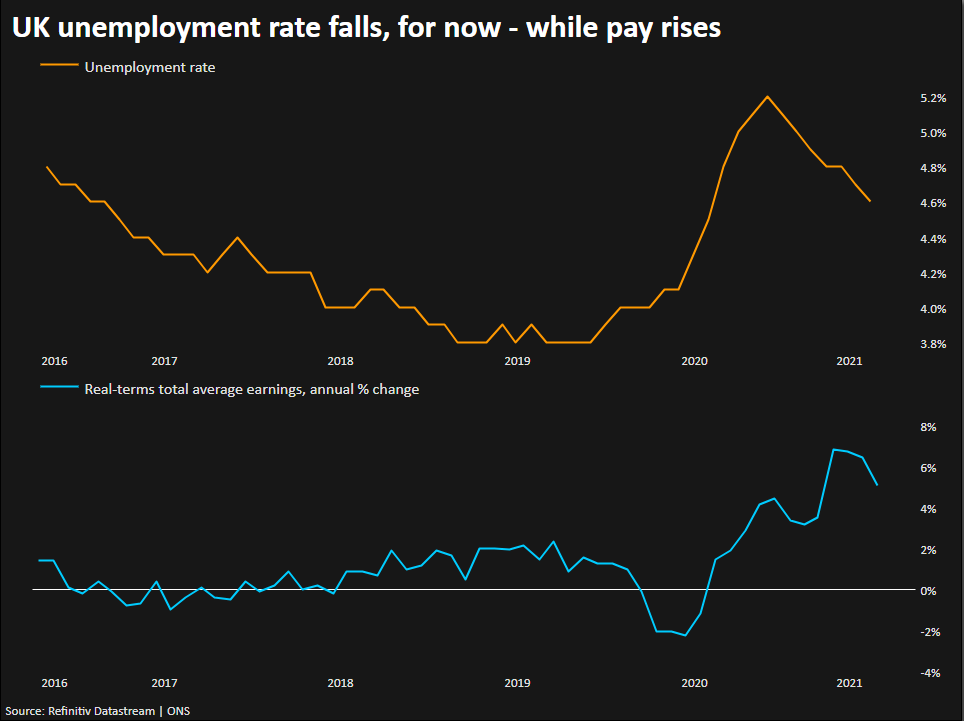

Reporting by Andy Bruce, Editing by Timothy Heritage
Our Standards: The Thomson Reuters Trust Principles.
Economy
Biden's Hot Economy Stokes Currency Fears for the Rest of World – Bloomberg


As Joe Biden this week hailed America’s booming economy as the strongest in the world during a reelection campaign tour of battleground-state Pennsylvania, global finance chiefs convening in Washington had a different message: cool it.
The push-back from central bank governors and finance ministers gathering for the International Monetary Fund-World Bank spring meetings highlight how the sting from a surging US economy — manifested through high interest rates and a strong dollar — is ricocheting around the world by forcing other currencies lower and complicating plans to bring down borrowing costs.
Economy
Opinion: Higher capital gains taxes won't work as claimed, but will harm the economy – The Globe and Mail
Canada’s Prime Minister Justin Trudeau and Finance Minister Chrystia Freeland hold the 2024-25 budget, on Parliament Hill in Ottawa, on April 16.Patrick Doyle/Reuters
Alex Whalen and Jake Fuss are analysts at the Fraser Institute.
Amid a federal budget riddled with red ink and tax hikes, the Trudeau government has increased capital gains taxes. The move will be disastrous for Canada’s growth prospects and its already-lagging investment climate, and to make matters worse, research suggests it won’t work as planned.
Currently, individuals and businesses who sell a capital asset in Canada incur capital gains taxes at a 50-per-cent inclusion rate, which means that 50 per cent of the gain in the asset’s value is subject to taxation at the individual or business’s marginal tax rate. The Trudeau government is raising this inclusion rate to 66.6 per cent for all businesses, trusts and individuals with capital gains over $250,000.
The problems with hiking capital gains taxes are numerous.
First, capital gains are taxed on a “realization” basis, which means the investor does not incur capital gains taxes until the asset is sold. According to empirical evidence, this creates a “lock-in” effect where investors have an incentive to keep their capital invested in a particular asset when they might otherwise sell.
For example, investors may delay selling capital assets because they anticipate a change in government and a reversal back to the previous inclusion rate. This means the Trudeau government is likely overestimating the potential revenue gains from its capital gains tax hike, given that individual investors will adjust the timing of their asset sales in response to the tax hike.
Second, the lock-in effect creates a drag on economic growth as it incentivizes investors to hold off selling their assets when they otherwise might, preventing capital from being deployed to its most productive use and therefore reducing growth.
Budget’s capital gains tax changes divide the small business community
And Canada’s growth prospects and investment climate have both been in decline. Canada currently faces the lowest growth prospects among all OECD countries in terms of GDP per person. Further, between 2014 and 2021, business investment (adjusted for inflation) in Canada declined by $43.7-billion. Hiking taxes on capital will make both pressing issues worse.
Contrary to the government’s framing – that this move only affects the wealthy – lagging business investment and slow growth affect all Canadians through lower incomes and living standards. Capital taxes are among the most economically damaging forms of taxation precisely because they reduce the incentive to innovate and invest. And while taxes on capital gains do raise revenue, the economic costs exceed the amount of tax collected.
Previous governments in Canada understood these facts. In the 2000 federal budget, then-finance minister Paul Martin said a “key factor contributing to the difficulty of raising capital by new startups is the fact that individuals who sell existing investments and reinvest in others must pay tax on any realized capital gains,” an explicit acknowledgment of the lock-in effect and costs of capital gains taxes. Further, that Liberal government reduced the capital gains inclusion rate, acknowledging the importance of a strong investment climate.
At a time when Canada badly needs to improve the incentives to invest, the Trudeau government’s 2024 budget has introduced a damaging tax hike. In delivering the budget, Finance Minister Chrystia Freeland said “Canada, a growing country, needs to make investments in our country and in Canadians right now.” Individuals and businesses across the country likely agree on the importance of investment. Hiking capital gains taxes will achieve the exact opposite effect.
Economy
Nigeria's Economy, Once Africa's Biggest, Slips to Fourth Place – Bloomberg


Nigeria’s economy, which ranked as Africa’s largest in 2022, is set to slip to fourth place this year and Egypt, which held the top position in 2023, is projected to fall to second behind South Africa after a series of currency devaluations, International Monetary Fund forecasts show.
The IMF’s World Economic Outlook estimates Nigeria’s gross domestic product at $253 billion based on current prices this year, lagging energy-rich Algeria at $267 billion, Egypt at $348 billion and South Africa at $373 billion.
-
Media13 hours ago
DJT Stock Rises. Trump Media CEO Alleges Potential Market Manipulation. – Barron's
-
Media16 hours ago
Trump Media alerts Nasdaq to potential market manipulation from 'naked' short selling of DJT stock – CNBC
-
Investment14 hours ago
Private equity gears up for potential National Football League investments – Financial Times
-



 Sports19 hours ago
Sports19 hours ago2024 Stanley Cup Playoffs 1st-round schedule – NHL.com
-



 Investment23 hours ago
Investment23 hours agoWant to Outperform 88% of Professional Fund Managers? Buy This 1 Investment and Hold It Forever. – The Motley Fool
-



 Health23 hours ago
Health23 hours agoToronto reports 2 more measles cases. Use our tool to check the spread in Canada – Toronto Star
-
Business14 hours ago
Gas prices see 'largest single-day jump since early 2022': En-Pro International – Yahoo Canada Finance
-
Real eState6 hours ago
Botched home sale costs Winnipeg man his right to sell real estate in Manitoba – CBC.ca




